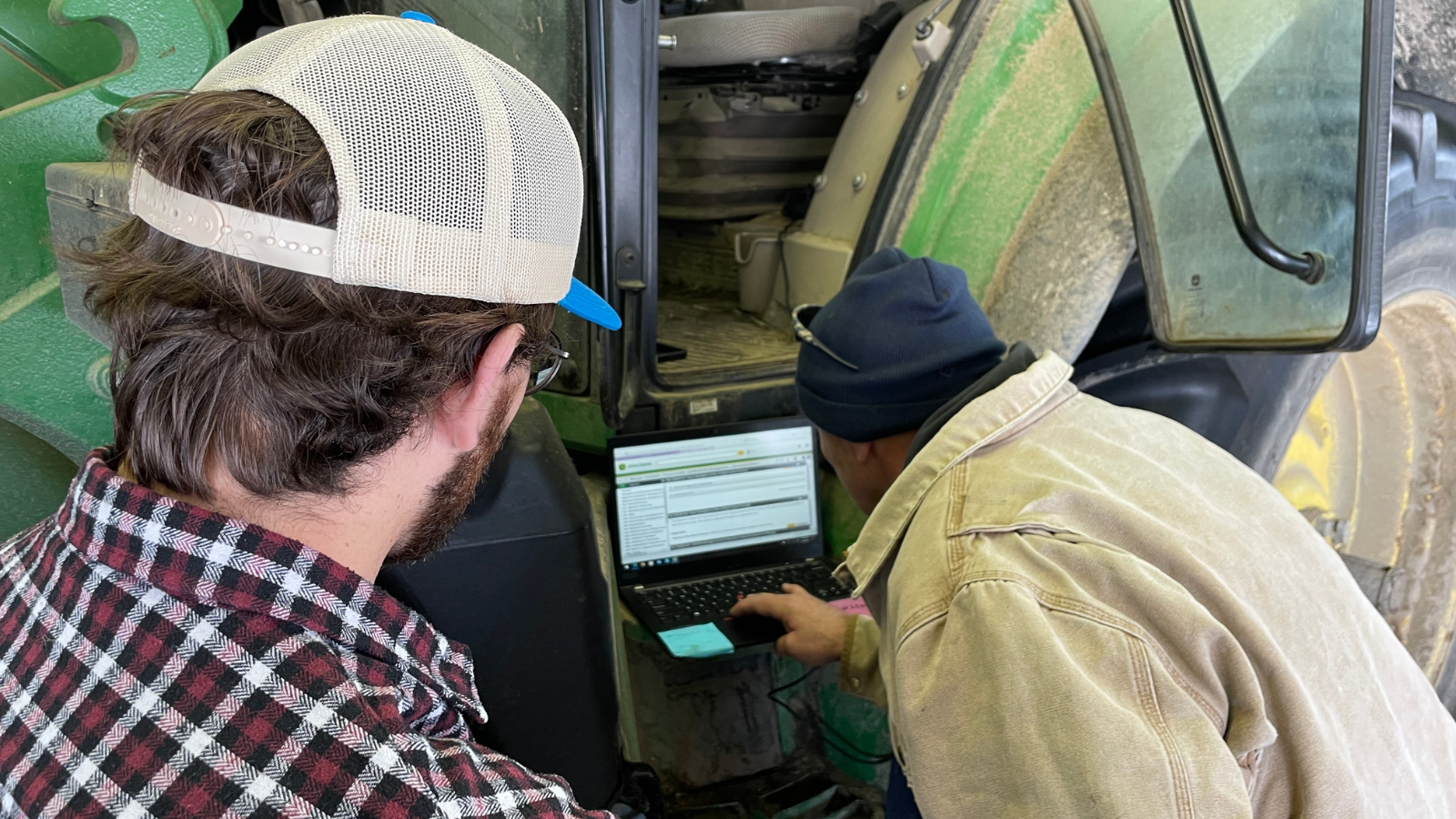
Leading consumer, health and food groups urge McDonald’s to quickly reduce antibiotic use in beef supply chains
Downloads
Alliance for Humane Biotechnology | American Grassfed Association | Antibiotic Resistance Action Center, The George Washington University | Aspen Center for Environmental Studies | Benedictine Sisters | Berkshire Environmental Action Team (BEAT) | Beyond Pesticides | Breast Cancer Prevention Partners | CalPIRG Education Fund | Center for Agricultural Development and Entrepreneurship (CADE) || Center for Biological Diversity | Center for Food Safety | Certified Naturally Grown | Clean Water Action (California) | CoPIRG Foundation | Consumer Reports | FAIRR Initiative | Family Farm Defenders | Farmworker Association of Florida | Farm Sanctuary | Food Animal Concerns Trust | Food Tank | Harvard Animal Law & Policy Clinic | Health Care Without Harm | Illinois Coalition for Clean Air & Water | Illinois PIRG Education Fund | Kewaunee CARES Citizens Advocating Responsible Environmental Stewardship | Lymphoma Foundation of America | Maine Organic Farmers and Gardeners Association | Maryland Campaign for Environmental Human Rights | Maryland Public Health Association | Maryland Votes for Animals | MASSPIRG Education Fund | MRSA Survivors Network | National Latino Farmers & Ranchers Trade Association | Nebraska Sustainable Agriculture Society | Northeast Organic Dairy Producers Alliance | Northeast Organic Farming Association of New York | NRDC (Natural Resources Defense Council) | Ohio Ecological Food and Farm Association | OSPIRG Foundation | ReAct Africa | ReAct Europe, Uppsala University | ReAct Strategic Policy Program and Innovation+Design Enabling Access (IDEA) Initiative, Johns Hopkins Bloomberg School of Public Health | Resnick Center for Food Law and Policy, UCLA Law | Roots of Change, A Program of the Public Health Institute | San Francisco Baykeeper | San Francisco Marin Medical Society | Sierra Club | Sisters of St. Francis of Philadelphia | Socially Responsible Agriculture Project | The Cornucopia Institute | The Food Voice, Inc. | U.S. PIRG Education Fund | Western Nebraska Resources Council (WNRC) | World Animal Protection US
November 24, 2021
Chris Kempczinski
McDonald’s Corporation, CEO
Dear Mr. Kempczinski,
We write to you as representatives of multiple organizations with millions of members to express our ongoing concerns about the overuse of antibiotics in livestock production. We ask that McDonald’s honor its December 2018 public commitment to eliminate the use of medically important antibiotics for routine prevention of disease in its beef supplies, and by the end of 2020, establish market-specific reduction targets for these antibiotics in its global beef and dairy beef supply chains. As far as we know, McDonald’s is now nearly a year late in meeting this pledge.
According to the Centers for Disease Control and Prevention, the rise of bacteria resistant to antibiotics is one of our most pressing public health threats. Millions of Americans get sick each year from drug-resistant infections, and one study estimates that up to 160,000 die annually. Overusing antibiotics in any setting can spur resistance, but it’s critical we work to reduce use in the livestock sector, where nearly two-thirds of medically important antibiotics sold in the U.S. go each year. The common practice of using these life-saving medicines to prevent disease and compensate for overcrowding and unsanitary living conditions on industrial farms is of particular concern.
McDonald’s has been a leader on this issue since 2015, when the company committed to and then shortly succeeded in purchasing only chicken raised without medically important antibiotics for its US market. That was a major step forward for public health. The company continued that leadership with its 2018 announcement to restrict use and set reduction targets for medically important antibiotics across 85 percent of its global beef supply chain by the end of 2020. This policy also included a commitment to phase out routine use of medically important antibiotics for prevention of disease. These commitments rightly were based on the 2017 World Health Organization “Guidelines on Use of Medically Important Antimicrobials in Food-Producing Animals” as clearly indicated in the 2018 announcement.
However, as far as we can determine, McDonald’s missed its 2020 deadline for setting reduction targets, and has not publicly reported any progress toward phasing out the routine use of the drugs.
Our groups call on McDonald’s to fulfill its previous commitments and continue to lead on this issue by:
-
Following through on setting meaningful reduction targets for medically important antibiotics across 85 percent of your global beef supply chain. Aggressive reductions will be especially important for the U.S. market, where sales of medically important antibiotics for use on cattle continue to rise.
-
Publicly reporting on progress regarding your commitment to prohibit routine use of medically important antibiotics for prevention of disease.
-
Adopting a third-party, independent auditor with expertise in antibiotics to verify antibiotics use practices amongst your suppliers to ensure public confidence in your progress.
Increasingly, consumers are asking for meat raised without the routine use of antibiotics. According to a recent national poll, labels claiming that meat was raised without antibiotics were important to two-thirds of consumers surveyed.
As a leader in the fast food sector and the beef production industry, McDonald’s is poised to lead the way in producing meat ethically and without the overuse of antibiotics. Fulfilling your commitment to reduce antibiotic use in beef will also set an important example for other fast food companies who have made similar commitments to do so, and help spark change.
We appreciate your attention to this pressing issue.
Respectfully,
Lydia Palumbo, Antibiotics Campaign Associate
U.S. PIRG Education Fund
Lena Brook, Director, Food Campaigns
NRDC (Natural Resources Defense Council)
Laura Rogers, Deputy Director
Antibiotic Resistance Action Center, The George Washington University
Cameron Harsh, Programs Director
World Animal Protection US
Julia Ranney, Research & Policy Associate
Center for Food Safety
Michael Hansen, Ph.D, Senior Scientist
Consumer Reports
Steve Roach, Safe and Healthy Food Program Director
Food Animal Concerns Trust
Supporting Organizations
Jeanine Thomas, Founder, President
MRSA Survivors Network
Melody Morell, Executive Director
The Cornucopia Institute
Ed Maltby, Executive Director
Northeast Organic Dairy Producers Alliance
Carrie Balkcom, Executive Director
American Grassfed Association
Belita Cowan, President
Lymphoma Foundation of America
Louisa Kasdon, CEO & Founder
The Food Voice, Inc.
Sherri Dugger, Executive Director
Socially Responsible Agriculture Project
Rudy Arredondo, President/CEO/Founder
National Latino Farmers & Ranchers Trade Association
Anthony D. So, MD, MPA, Director
ReAct Strategic Policy Program and Innovation+Design Enabling Access (IDEA) Initiative, Johns Hopkins Bloomberg School of Public Health
Amalie Lipstreu, Policy Director
Ohio Ecological Food and Farm Association
Conrad Amenta, Executive Director
San Francisco Marin Medical Society
Katie Baildon, Policy Coordinator
Northeast Organic Farming Association of New York
Nezahualcoyotl Xiuhtecutli, General Coordinator
Farmworker Association of Florida
Hannah Connor, Senior Attorney
Center for Biological Diversity
Emma Sirois, National Director, Healthy Food in Health Care
Health Care Without Harm
Helle Aagaard, Acting Director
ReAct Europe, Uppsala University
Jay Feldman, Executive Director
Beyond Pesticides
Jane Winn, Executive Director
Berkshire Environmental Action Team (BEAT)
John E. Peck, Executive Director
Family Farm Defenders
M. L. Tina Stevens, PhD, Director
Alliance for Humane Biotechnology
Alice Varon, Executive Director
Certified Naturally Grown
Christy Mahon, Development Director
Aspen Center for Environmental Studies
Buffalo Bruce, Staff Ecologist
Western Nebraska Resources Council (WNRC)
Katherine Meyer, Clinic Director
Harvard Animal Law & Policy Clinic
Diana Winters, Deputy Director
Resnick Center for Food Law and Policy, UCLA Law
Mirfin Mpundu, Director
ReAct Africa
Nancy Utesch, Founder
Kewaunee CARES Citizens Advocating Responsible Environmental Stewardship
Wally Graeber, Program Coordinator
Nebraska Sustainable Agriculture Society
Maria Lettini, Executive Director
FAIRR Initiative
Tom McCaney, Associate Director, CSR
Sisters of St. Francis of Philadelphia
Sr. Susan Mika OSB, Director, Corporate Responsibility
Benedictine Sisters
Heather Spalding, Deputy Director
Maine Organic Farmers and Gardeners Association
Gene Baur, President and Co-founder
Farm Sanctuary
Danielle Nierenberg, President
Food Tank
Karen Hudson, Co-founder
Illinois Coalition for Clean Air & Water
Lisa Radov, Chairman
Maryland Votes for Animals
Kenneth Jaffe, MD, Board Member
Center for Agricultural Development and Entrepreneurship (CADE)
Nina Beth Cardin, Director
Maryland Campaign for Environmental Human Rights
Andria Ventura, Legislative and Policy Director
Clean Water Action (California)
Sejal Choksi-Chugh, Executive Director
San Francisco Baykeeper
Janet, Sr. Director of Program and Policy
Breast Cancer Prevention Partners
Raimee Eck, Policy Chair
Maryland Public Health Association
Michael R. Dimock, Program Director
Roots of Change, A Program of the Public Health Institute
Abe Scarr, Director
Illinois PIRG Education Fund
Charlie Fisher, Director
OSPIRG Foundation
Emily Scarr, Director
Maryland PIRG Foundation
Jenn Engstrom, Director
CalPIRG Education Fund
Janet Domenitz, Executive Director
MASSPIRG Education Fund
Danny Katz, Executive Director
CoPIRG Foundation
Alexander Rony, Co-Chair, Food & Agriculture Grassroots Network Team
Sierra Club
Topics
Find Out More


Food for Thought Part 2: An analysis of food recalls for 2022

Out to Pasture
